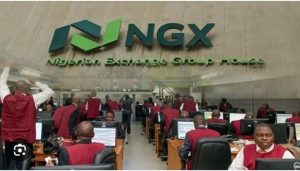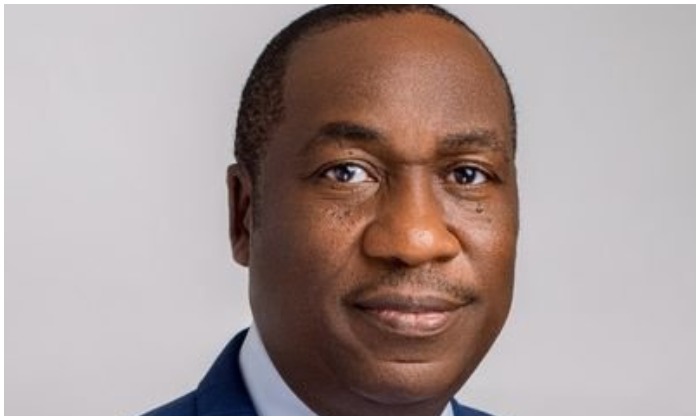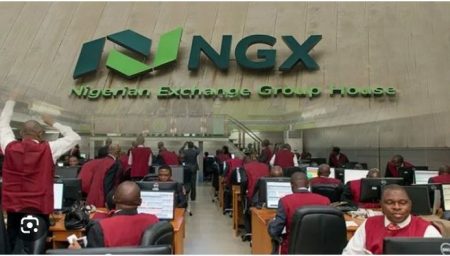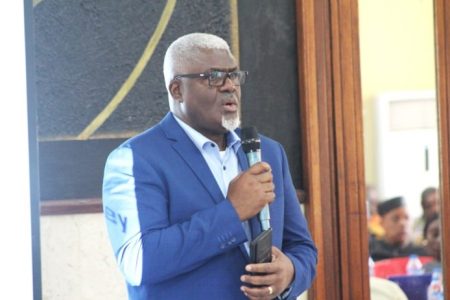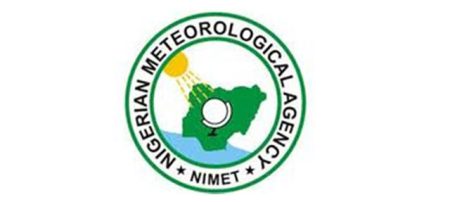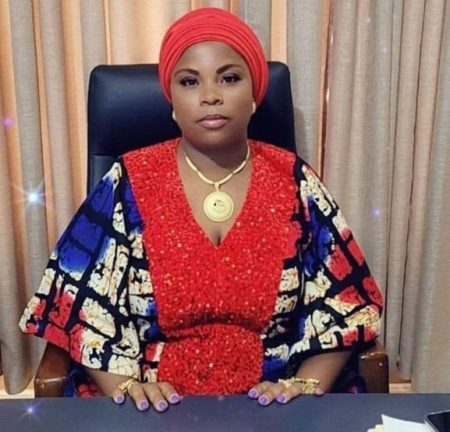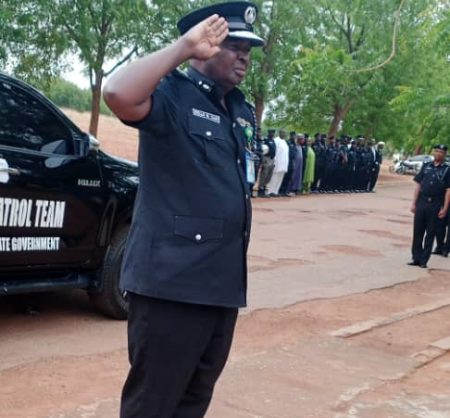The Lagos State Deputy Governor, Dr. Obafemi Hamzat, recently underscored the urgent need to address the numerous threats posed by climate change to the state’s future. Speaking at a management meeting with various stakeholders, Hamzat highlighted alarming global trends, drawing comparisons with regions such as the United Kingdom and New York City, where populations are already relocating due to climate-induced challenges like rising sea levels. With Lagos sitting on a vulnerable 180-kilometer shoreline, he emphasized the critical need for immediate risk mitigation measures to avert potential disasters that could lead to submersion and significant displacement of citizens. The Deputy Governor’s message was clear: inaction could lead Lagos to share the unfortunate fate of other cities currently battling climate-related adversities.
Hamzat articulated three primary threats confronting Lagos: extreme heat, rising sea levels, and the overarching impacts of climate change. He called for a strategic shift in focus, urging stakeholders to identify and prioritize areas that require preservation over the next two to three decades. Critically, he pointed out the consequences of mismanagement of land and poor physical planning, which he deemed as some of Nigeria’s significant challenges. Citing global best practices, he drew parallels with cities such as the UK, where urban land management is rigorously enforced, and pointed to New York City’s recent decisions to halt approvals for new high-rise buildings as measures to combat similar issues. The Deputy Governor emphasized the urgency of learning from these examples and acting proactively before it becomes too late, making a clarion call for concerted action among stakeholders to tackle these existential threats to the city.
Complementing the Deputy Governor’s urgent message on climate change, the Attorney General and Commissioner for Justice, Mr. Lawal Pedro (SAN), opened the stakeholders’ meeting by discussing the critical need to reduce the backlog of government litigations clogging the court system. He presented the shocking statistic of over 6,047 pending cases, with land disputes alone dominating the figures. Further complicating the situation, he indicated that the government’s financial exposure in these legal cases amounts to approximately N114.5 billion. Pedro mapped out a collaborative agenda aimed at swifter and more efficient justice delivery in Lagos State. The gathering not only represented a response to the challenges highlighted at the previous Lagos Justice Summit but also underscored a firm resolve to enhance synergy among various stakeholders within the justice sector.
As the meeting unfolded, Pedro reiterated that the responsibility for justice delivery cannot rest on any single institution; instead, it demands a collective effort among various arms of government, regulatory bodies, law enforcement agencies, and the community. A significant focus was placed on improving coordination between law enforcement and the Ministry of Justice to enhance the prosecution of state offenses. He explained ongoing efforts to develop more cohesive processes that would facilitate an efficient working relationship between these entities while committing to fighting corruption. However, he stressed the importance of ensuring that the court system is not exploited to intimidate citizens or resolve personal grievances, which would erode public confidence in the justice delivery mechanism.
During the discussions, Pedro also addressed queries surrounding Lagos State’s decision not to join the chorus of states challenging the Economic and Financial Crimes Commission (EFCC) in the Supreme Court. He clarified that this was in light of ongoing litigation related to a similar matter, arguing that joining would constitute an abuse of the court process. Pedro outlined that while Lagos State had taken proactive steps by establishing its own anti-corruption agency, it needed to maintain focus on the pending case against the EFCC which has stalled its operations. He asserted that state law empowers the Attorney General to prosecute on behalf of the state, reinforcing the idea that any agency involved in state prosecutions must have the Attorney General’s backing.
Justice Mojisola Olatoregun (retd.), the keynote speaker, echoed the sentiment for improved collaboration among law enforcement and prosecutorial agencies in her address, pinpointing corruption as a significant roadblock in the quest for justice. Olatoregun highlighted the alarming frequency of financial crimes, which she termed “white-collar crimes,” emphasizing their insidious nature as they undermine societal integrity and safety. She highlighted instances where negligence may have led to fatal accidents, such as buildings collapsing due to fraudulent permits and misappropriations of funds. In her address, she made a pointed case for stronger regulatory oversight, arguing for regular audits, stringent enforcement of construction regulations, and improved transparency regarding funding for public projects as essential instruments to combat corruption in the system.
In conclusion, the meeting underscored the twin challenges facing Lagos State: the looming threat of climate change and the need for a cohesive and effective justice system. Both Dr. Hamzat and Mr. Pedro exemplified the urgent call for proactive measures to mitigate climate risks while simultaneously tackling the complex issues within the justice system that lead to prolonged litigation and financial liability. Petitioning to learn from global examples, they laid the groundwork for a collaborative approach to fortify both environmental and judicial resilience. This concerted effort is pivotal in paving the way for a comprehensive strategy that aligns governance, community well-being, and sustainable development in Lagos.



